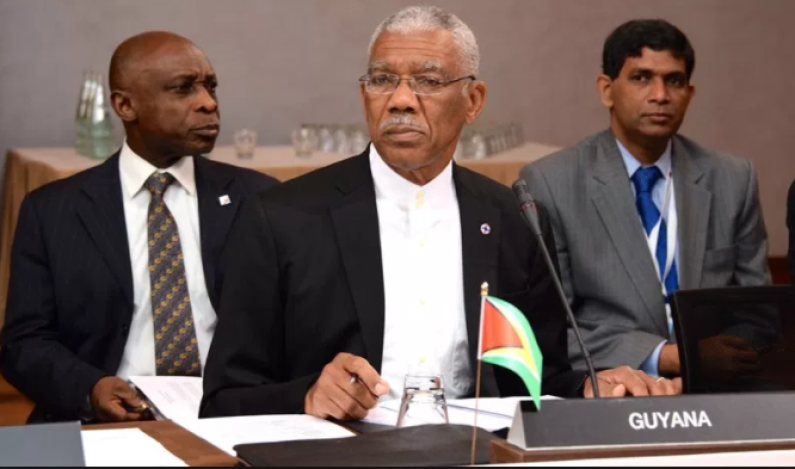
Vice President and Minister of Foreign Affairs, Carl Greenidge on Wednesday said Guyana intends to press the United Nations (UN), during the 72nd General Assembly, to move forward with the aim of bringing an end to the ongoing border controversy with neighboring Venezuela.
He did not indicate any interest on Guyana’s part to support any extension of the ongoing mediation process. Guyana remains interested in the matter being referred to the International Court of Justice (ICJ).
“The President’s Statement will no doubt make reference to the process and Guyana’s wish to ensure that the SG adheres to commitment that he made to facilitate dialogue with the parties and ensure by the end of 2017, if there is no resolution or significant progress, the matter will be referred to the ICJ,” the Foreign Minister said.
Minister Greenidge said the consequences of this prolonged controversy and the uncertainty of Venezuela’s behavior, stand to undermine Guyana’s development, social and political stability.
In declining to comment on the ongoing mediation process, Greenidge noted that the process, as set out by the UN, does not make provision to address the process as it is ongoing.
“The process has time-lines and, notwithstanding our concerns about some of the ideas of the SG, we embraced the process on the understanding that it will be implemented in good faith by all parties including the United Nations,” the Minister added.
President David Granger and the UN Secretary General are expected to meet to discuss the process and the outcome of the exercise. This meeting is likely to take place on September 25th.
Asked whether Guyana will engage Venezuela, Greenidge said Guyana has never had a difficulty in that regard.
The 72nd session of the United Nations General Assembly (UNGA) is scheduled for next week at the UN Headquarters in New York. President David Granger will participate in the General Debate at the UNGA on Tuesday morning.
Greenidge said Guyana’s delegation will look to participate in as many side events as possible and engage friendly states in bi-lateral discussions on issues of common interest.
“We expect to have a range of meeting with traditional partners int he West as well as Europe and states in the African Pacific and of course Latin America,” he said.






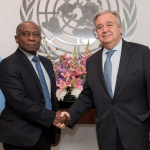
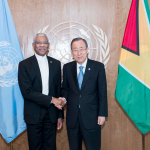
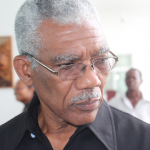
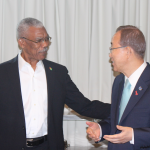

You must be logged in to post a comment Login